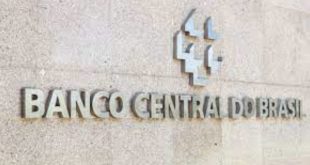
Let’s start with some context… It is more than six years now since the Gambling Commission flagged up concerns about the insulation of high-value “VIP customers” from the social responsibility obligations and practices applying elsewhere in gambling operators’ businesses.
This was accompanied by a series of regulatory failings where operators had appeared reluctant to interact with commercially valuable customers on social responsibility or crime prevention grounds for fear of losing their custom to competitors.
This state of affairs resulted in a tightening of LCCP requirements, announced in February 2015, requiring UK licensed operators’ policies and procedures for customer interaction to include “specific provision for making use of all relevant sources of information to ensure effective decision making, and to guide and deliver effective customer interactions, including in particular ….. specific provision in relation to customers designated by the licensee as ‘high value’, ‘VIP’ or equivalent”.
Subsequently, those LCCP requirements changed again, with effect from 31 October 2019, this time to coincide with introduction of a new requirement that both remote and non-remote operators must take into account the Commission’s ‘Customer Interaction Guidance’.
That guidance emphasises the need for all operators to “take safer gambling seriously for all customers, including VIPs, and not let commercial considerations override customer protection” and to ensure that “VIP customers get the same level of protection as … other customers”. It also set out the Commission’s expectations of all operators in relation to customer affordability.
In the same month – October 2019 – the Commission’s Chief Executive Neil McArthur gave a speech in which he made it clear that offers of ‘VIP’ status and associated incentives and bonuses had remained a constant feature in the Commission’s enforcement work, threatening that “if the industry cannot or will not drive improvements in this area, we will need to explore the use of all our tools to encourage or mandate changes in the interests of consumer protection”.
It immediately became a priority for development by an ‘Incentivisation of high value customers’ working group (headed by GVC and working in conjunction with the Betting and Gaming Council) of a code of conduct in relation to operators’ treatment of VIPs and associated inducements to gamble, with the Gambling Commission responding to that working group’s recommendations at the beginning of April this year.
The BGC’s voluntary ‘Gambling Industry Code of Conduct – High-Value Customer VIP Reward Programmes’ was published not long after that, as too was the Commission’s consultation on high-value customers, that ran until 14 August 2020. At the heart of that consultation was the proposal that a new Social Responsibility Code provision 5.1.1.2 should be inserted in the LCCP stating that: “If a licensee makes available incentives or reward schemes for customers, designated by the licensee as ‘high value’, ‘VIP’ or equivalent, they must be offered in a manner which is consistent with the licensing objectives. Licensees must take into account the Commission’s guidance on high value customer incentives”.
Those who dismissed any prospect of a fundamental change of approach on the part of the Commission arising from responses to that consultation were not surprised.
The new HVC requirements
In what must be close to record time for the Commission to report back following the conclusion of a consultation, it announced on 30 September 2020 that the new SR Code provision will come into force on 31 October 2020 in precisely the same terms as the original proposal, giving UK licensed operators – both remote and non-remote – a very short period of time to introduce all of the new measures outlined in the High-Value Customers Industry Guidance that will come into effect on the same date.
You can access here a marked-up version of that guidance, showing (in yellow) changes made to the final version by comparison with the draft that had been published with the consultation.
UK licensed operators should be under no misapprehension. In its consultation response document, the Commission makes it clear that “should a business be found to have misapplied the guidance, or use HVC schemes to exploit vulnerable consumers, they will be subject to regulatory action. This may include, but not be limited to, restrictions placed on individual licences that will prohibit the offering of HVC schemes”.
Announcing publication of the guidance, McArthur has gone further, stating: “Operators can be in no doubt about our expectations. If significant improvements are not made, we will have no choice but to take further action and ban such schemes.”
Operators will be mistaken if they dismiss this new guidance on the basis that they do not explicitly designate any of their customers as ‘high-value customers’ or ‘HVC’, being the acronym used in the guidance document. If an operator considers any of its customers as having sufficient commercial value to warrant the provision of enhanced customer service unavailable to its wider customer base, it is likely to find that HVCs have been created quite regardless of the label that the operator itself applies to that group of customers.
In this respect, the Gambling Commission regards its guidance as being aimed at “schemes that offer tailored or personalised incentives linked to high value spend or frequency of play”. It goes on to say that such incentives might include, but are not restricted to:
- invitation to hospitality, events, dinners or other enhanced services,
- personal account management/dedicated point of contact with the licensee, and
- individualised bonuses, benefits or gifts.
It follows that if an operator provides any one of these, or other, types of personalised incentives to some only of its customers that it regards as being of high value to its business, it should in all probability be regarding those customers as falling within the ambit of the new social responsibility code provision 5.1.1.2. If in doubt about this, do please take specialist expert advice.
Bearing in mind the short period of time before the Commission’s HVC Industry Guidance comes into effect, all affected operators should already be working on such matters as:
- preparing their own definition of an HVC, taking into account their own business model and overall customer base;
- conducting an assessment of the heightened risks associated with accepting and incentivising the custom of HVCs and how to mitigate that risk, both at the outset of the customer relationship and on an ongoing basis;
- conducting an assessment of the risk associated with each individual HVC, as a minimum taking into account affordability, vulnerability/safer gambling and enhanced due diligence factors, that will also serve to determine the frequency of checks required;
- drafting and planning implementation of effective policies and procedures for the operation and governance of their HVC schemes, including:
- authority levels for key decision-making,
- a named PML holder at senior executive level or equivalent, accountable for the HVC programme’s compliance,
- oversight of appropriate governance arrangements for HVC schemes (including keeping such schemes under review) by the operating company’s Board or an Executive Committee,
- maintenance of full audit trails of each HVC relationship to (a) monitor changes in behavioural and transactional activity and (b) record decisions made and all customer contacts, and
- use of audit or assurance functions to ensure objective assessments can be made whether an HVC scheme is operating in accordance with the licensing objectives under the Gambling Act 2005;
- enhanced staff training on safer gambling and AML risks specific to HVC management (including in relation to the escalation of concerns relating to HVCs);
- ensuring arrangements are in place whereby HVC teams will work collaboratively with other teams (e.g. safer gambling and AML) to allow for objective decision-making and reviews, based on all available information;
- reviewing job descriptions of all persons involved with HVC schemes, taking into account the Commission’s guidance that (a) protection of the licensing objectives is the basis for all activity conducted by such persons, (b) staff should not be incentivised or remunerated based on a customer’s loss, spend or activity and (c) where possible, staff who look after specific HVCs should be rotated to ensure that objectivity in decision-making is maintained;
- reviewing arrangements with affiliates with whom they contract for any provision of their HVC acquisition or management.
In setting out the above priorities, I am not summarising all provisions within the Gambling Commission’s HVC Industry Guidance. I should also make it clear that, although that guidance will take precedence over the BGC’s voluntary code, the latter contains a number of ‘good practice’ measures that all UK licensed operators would be well advised to adopt if they have not already done so.
Inevitably, more is yet to come. The supposedly imminent commencement of the government review of the Gambling Act 2005 may still yet put all forms of customer incentivisation at risk, the newly formed ‘Peers for Gambling Reform’ group calling for, amongst other reforms, “a ban on direct marketing and all inducements”.
That’s not all…
It must also be borne in mind that, when announcing publication of its HVC guidance, the Gambling Commission has flagged up:
- a forthcoming consultation on customer interaction, that it says will: “include the assessment of affordability, identifying vulnerability and how to take early preventive and reactive action when there are risk indicators”, and
- publication shortly of its response to its safer online game design consultation, following on from publication of the BGC’s own Game Design Code of Conduct on 25 September 2020.
Testing times lie ahead!
___________________
David Clifton – Director – Clifton Davies Consultancy Limited










